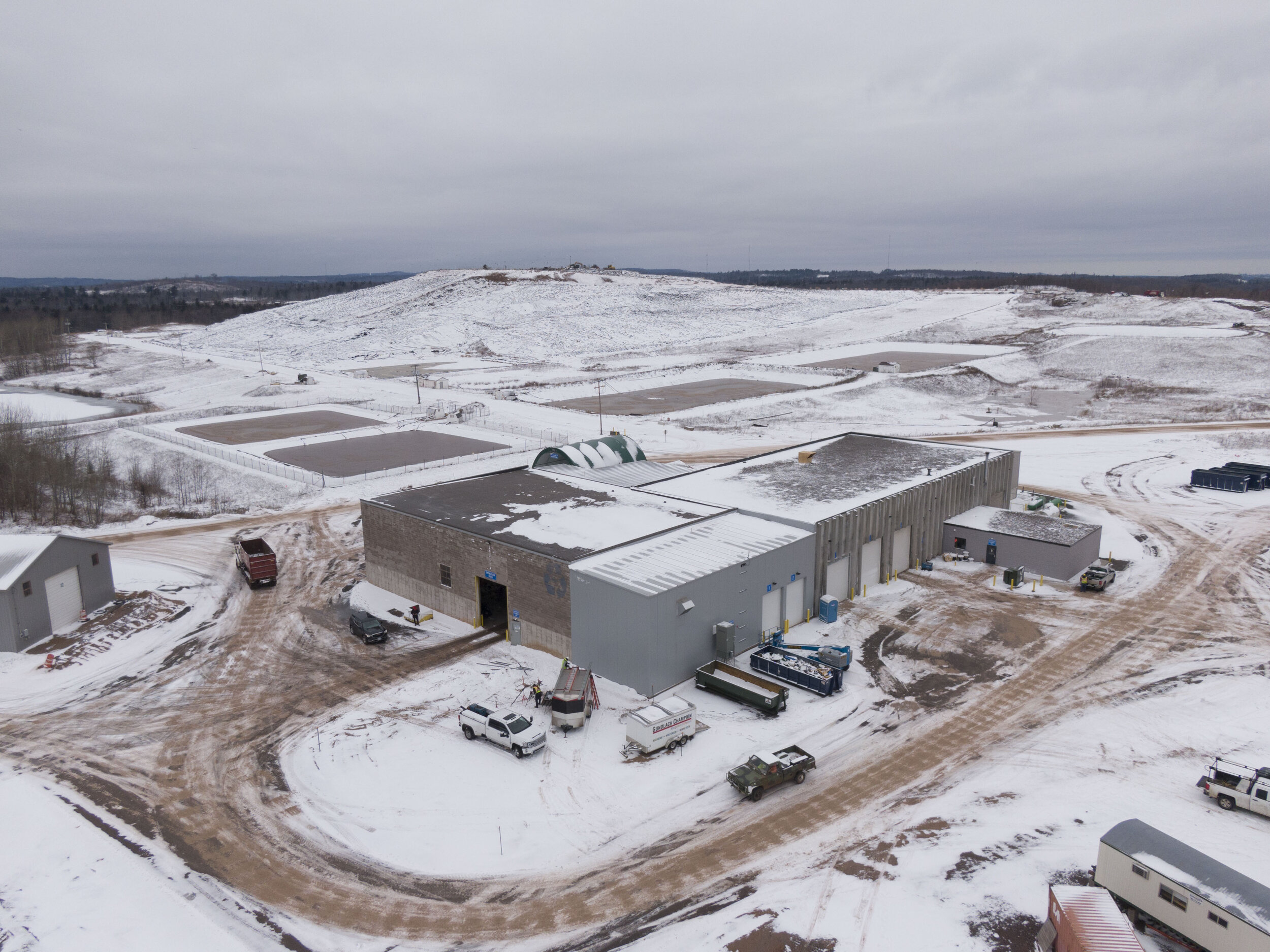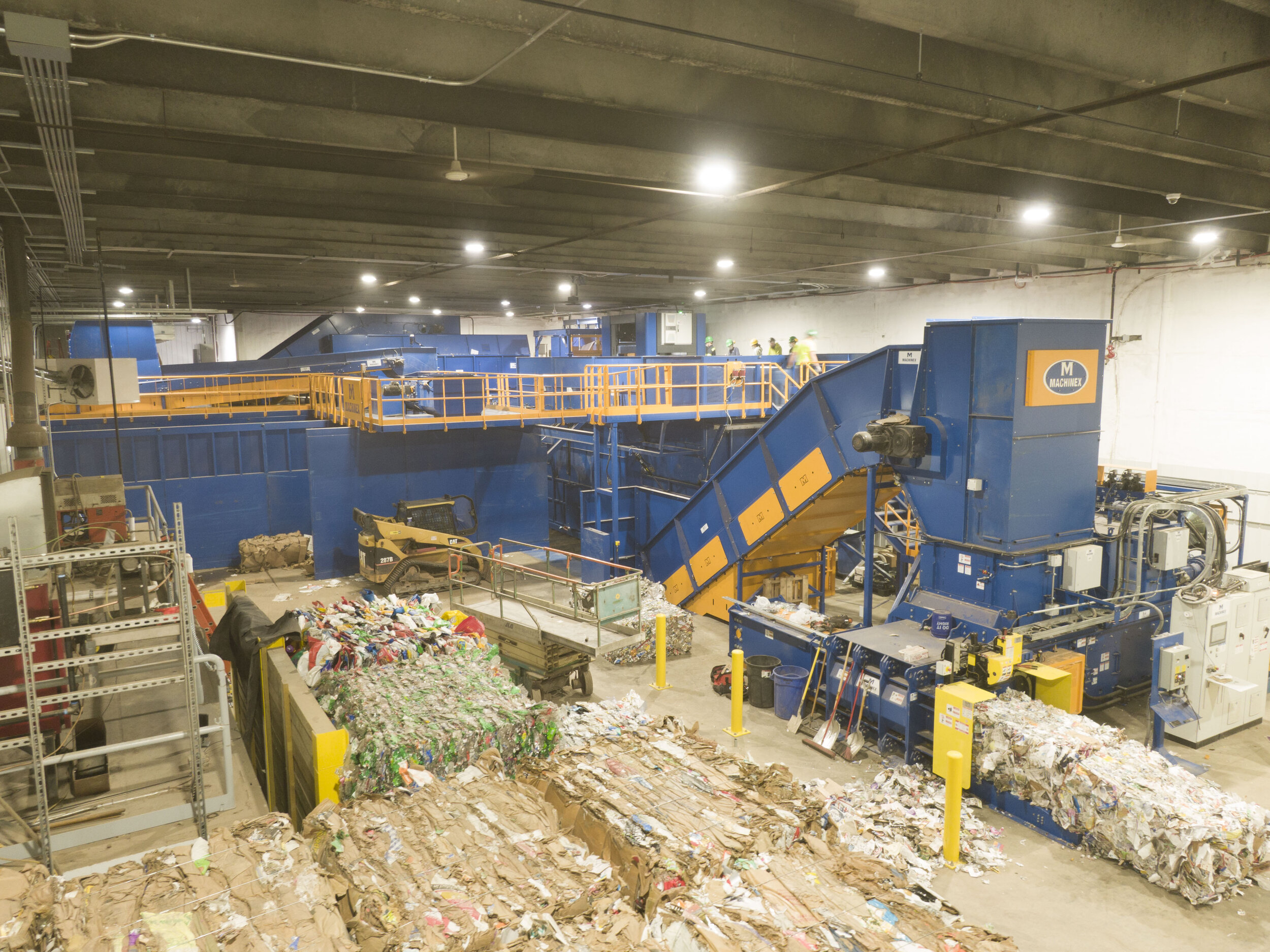Solving for Scale in Rural Michigan: Marquette County Solid Waste Management Authority
The Challenge
The Marquette County Michigan Solid Waste Management Authority (MCSWMA) had a problem. Located in Michigan Upper Peninsula, the recycling program feeding their dual stream material recovery facility (MRF) was mired in low participation – around 40% and decreasing each year. Recyclables were going to landfill at an increasing rate. The lack of scale and distance to market resulted in ever-decreasing commodity revenue and strained the recycling facility’s viability.
Through research the county learned that these issues could be boiled down to two factors:
Limited capacity to provide access throughout the region; and
Confusion among participants, as fiber and containers were picked up on alternate weeks.
The Solution
These issues led MCSWMA to the conclusion to go big or go home. The Authority upgraded the facility to a regional single stream MRF capable of serving not only the County’s 65,000 residents, but potentially the entire regions’ population of approximately 200,000. Shifting to single stream resolved the curbside confusion and promised to increase participation. Expanding access brought in tens of thousands of new customers. The newly added state-of-the-art processing system that includes optical sorting and robotics with artificial intelligence has the Authority reaching a level of scale and quality that unlocks new markets for their material.
The Team
The Authority was able to move forward with a $6.3 million facility development, despite struggling to keep the program solvent and operate a regional landfill at the same time, through a creative public-private partnership. The Closed Loop Fund provided a $3 million interest-free loan, while the Michigan Department of Environment, Great Lakes and Energy (EGLE) provided an $800,000 infrastructure grant. The balance of the capital came from the Authority’s cash reserves and a loan with a local credit union. Resource Recycling Systems (RRS) helped to bring the financial and technical pieces together. The key to securing this funding was the promise of developing a model regional recycling system that could inspire other rural regions to follow.
Path for Glass: A Road Less Traveled
Within this story glass has had its own journey. As a costly material to separate and transport to market the Authority determined that it was not feasible to treat it like other recyclables. It had not been included in the program since 2018 and even now is collected in a separate stream.
However, they did not want to simply let this valuable resource take up space in their landfill. It required the Authority to think differently and find a local solution. Through partnership with Michigan Tech University, a solution for onsite glass processing into an aggregate material for use in road and pathway construction has commenced. Within the county some municipalities collect glass curbside in a separate stream, while drop off is available in other parts of the region. Whatever the collection approach, inclusion of glass in the accepted recyclables proved a key factor in the popularity of the new Authority facility. Either way, through partnership and out-of-the-box thinking glass has managed to find a home in Marquette County under the Northern Lights.
Photos and graphics:



